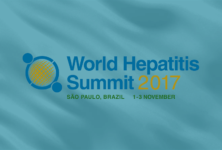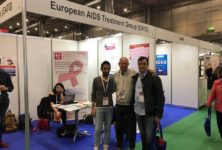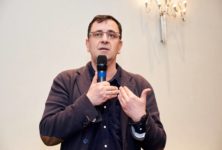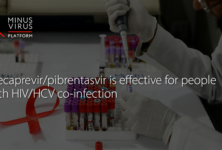A new WHO report provides insight into how countries in the WHO European Region can improve access and reduce medicine prices through strategic and well-planned procurement processes. The report examines the effect of different public procurement practices on supply security and prices for pharmaceuticals. It also addresses collaboration within and across countries to improve availability of affordable medicines for patients in the Region.
Countries in the Region have varying capacity and negotiating power when it comes to procuring new medicines and health technologies. As a result, the prices that a given country is asked to pay for its medicines may be disproportionally high and incompatible with its purchasing power.
A study cited in the report serves to illustrate the problem. It compares ex-factory prices of 2 new medicines used to treat hepatitis C – sofosbuvir and ledipasvir-sofosbuvir – and reveals that the cost of treating the entire hepatitis C-infected population in each of the 30 countries examined would range from 10.5% of the total pharmaceutical expenditure in the Netherlands to 190.5% in Poland. The price of a single course of sofosbuvir was equivalent to 5.28 years of the average annual wage in Turkey. The high price of ledipasvir-sofosbuvir in England led the National Health Service to restrict treatment to the most severely ill patients.
According to Ms Hanne Bak Pedersen, Programme Manager of Health Technologies and Pharmaceuticals in WHO/Europe’s Division of Health Systems and Public Health, “Strengthening procurement and supply management is a vital part of countries’ efforts to secure access to quality medicines at affordable prices.”
Joint procurement among countries
The report examines how access to medicines can be further improved when countries collaborate on procurement, either regionally or subregionally. Collaborations of this nature can take place at different levels, varying from informed buying – where participating countries share information on prices, suppliers and health technology assessment methodologies, but conduct their own procurement individually – to central contracting and procurement – where participating countries issue joint tenders through a central buying unit. Countries have joined efforts to form a number of these collaboration initiatives in recent years, including the Beneluxa group and the Nordic Forum.
In developing the report, WHO/Europe, in collaboration with other partners, mapped procurement processes currently in place within countries in the Region. The analysis fed into discussions at a WHO consultation on strategic procurement, organized in September 2016 in Copenhagen, Denmark, in which representatives of public medicine procurement agencies from 42 countries reviewed national experiences.
Relevance to EU policy
Increasing collaboration between health systems in Europe is also a priority on the European Union (EU) agenda. During the forthcoming EU Maltese presidency from January to July 2017, stakeholders will further discuss structured cooperation at a technical workshop on 1–2 March 2017. The outcomes of this workshop will feed into a ministerial meeting on 20 March 2017, which will set out the political direction for drafting European Council conclusions on this topic.
Access to medicines key to European and global health priorities
WHO supports countries in developing and implementing strategies to contain the cost and optimize the use of medical products. For countries in transition, this means helping to set up and support regulation, pricing and reimbursement systems, and assisting with other supply-related matters. As noted by Dr Hans Kluge, Director of the Division of Health Systems and Public Health, “Ensuring access to high quality, affordable medicines and health services is a central part of the Region’s push towards universal health coverage, and fully in line with a health-systems-strengthening agenda.”
WHO’s work on the issue contributes to several of the 17 Sustainable Development Goals, including: ensuring access to safe, effective, quality and affordable essential medicines and vaccines for all (target 3.8), supporting the research and development of vaccines and medicines (target 3.b), ensuring universal access to sexual and reproductive health (target 5.6), ensuring sustainable consumption and production patterns (Goal 12) and revitalizing the global partnership for sustainable development (Goal 17).
The topic of improving access to medicines in the Region is also on the agenda for the 67th session of the WHO Regional Committee for Europe, to be held in September 2017 in Budapest, Hungary.


 ПОИСК ПО САЙТУ
ПОИСК ПО САЙТУ  поиск по ресурсному центру
поиск по ресурсному центру 



